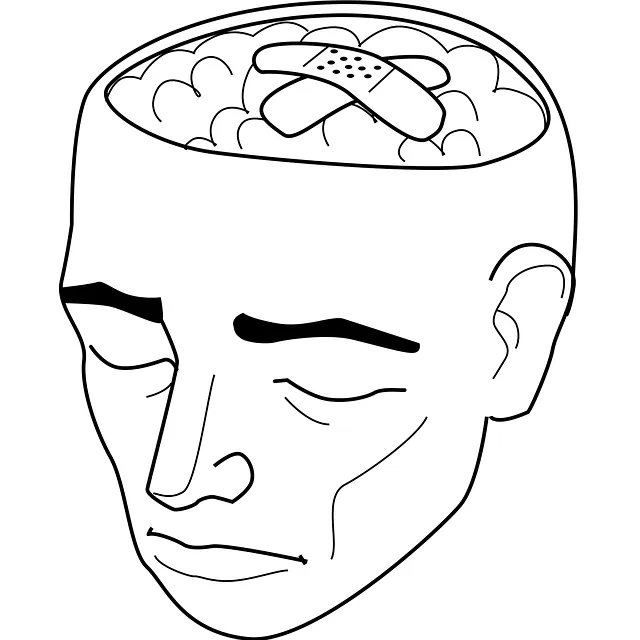The Wheat Ridge Kaiser Permanente mental health center is committed to delivering culturally competent care, addressing biases and unconscious stereotypes through staff training and introspection. They promote trust, respect, and understanding among diverse patient populations by implementing active listening, cultural humility, and compassion cultivation practices. Comprehensive guidelines, regular workshops on bias awareness and communication strategies, and stress management tools create a safe, inclusive environment that enhances patient outcomes and supports emotional healing at the Wheat Ridge Kaiser Permanente mental health center.
“Cultural competency is a vital aspect of modern healthcare, especially within diverse communities like that served by Wheat Ridge Kaiser Permanente Mental Health Center. This article explores the significance of cultural competency training for healthcare providers and its impact on patient outcomes. We delve into specific strategies employed at Wheat Ridge Kaiser Permanente, including bias awareness, inclusive communication, and environmental design, to enhance patient care and foster trust across diverse populations.”
- Understanding Cultural Competency in Healthcare: Why It Matters at Wheat Ridge Kaiser Permanente Mental Health Center
- Identifying Biases and Unconscious Stereotypes: A Critical Step for Healthcare Providers
- Effective Communication Strategies: Building Trust with Diverse Patients
- Creating an Inclusive Environment: Policies and Practices at the Wheat Ridge Kaiser Permanente Mental Health Center
Understanding Cultural Competency in Healthcare: Why It Matters at Wheat Ridge Kaiser Permanente Mental Health Center

Cultural competency is a vital aspect of healthcare that ensures patients from diverse backgrounds receive respectful, culturally sensitive care. At Wheat Ridge Kaiser Permanente Mental Health Center, understanding cultural competency goes beyond mere awareness; it’s about fostering an environment where emotional healing processes can thrive. Here, healthcare providers are trained to navigate the intricate web of cultural differences, recognizing that every patient enters the center with a unique perspective shaped by their experiences and traditions.
By integrating compassion cultivation practices into their training, Wheat Ridge Kaiser Permanente Mental Health Center equips its staff to offer holistic care. This involves learning to communicate effectively, understanding implicit biases, and adapting therapeutic approaches to resonate with diverse populations. Through these efforts, the center strives to create a safe space where patients feel heard, validated, and empowered to share their stories, laying the foundation for meaningful therapy and improved mental health outcomes.
Identifying Biases and Unconscious Stereotypes: A Critical Step for Healthcare Providers

Healthcare providers at the Wheat Ridge Kaiser Permanente mental health center recognize that identifying biases and unconscious stereotypes is a critical step in delivering culturally competent care. These biases, often subtle yet powerful, can influence interactions with patients from diverse backgrounds, shaping perceptions and decisions. By acknowledging and understanding their own preconceived notions, professionals can better navigate the complex landscape of cultural differences, ensuring every patient receives personalized, respectful treatment.
This process involves a deep introspection into one’s personal experiences, societal influences, and educational background. It encourages mental health experts to question how these factors might shape their approach when encountering individuals from various ethnic, cultural, or socioeconomic groups. Moreover, this self-awareness facilitates improved risk assessment for mental health professionals, enabling them to create safer, more inclusive environments that foster resilience building among patients.
Effective Communication Strategies: Building Trust with Diverse Patients

Effective communication is a cornerstone of quality healthcare, especially when serving diverse patient populations. At Wheat Ridge Kaiser Permanente mental health center, trainers emphasize building trust through active listening and cultural humility. This involves recognizing and respecting individual beliefs, values, and experiences, creating an environment where patients feel understood and heard.
Mental health professionals can employ Compassion Cultivation Practices to foster empathetic connections. By sharing personal stories and practicing mindfulness, providers can reduce defensiveness and promote open dialogue. Additionally, participating in Stress Management Workshops Organization sessions equips them with tools to navigate challenging conversations while managing their own stress levels. These strategies are integral to effective communication, ultimately enhancing patient care and outcomes within the context of diverse cultural backgrounds.
Creating an Inclusive Environment: Policies and Practices at the Wheat Ridge Kaiser Permanente Mental Health Center

At the Wheat Ridge Kaiser Permanente Mental Health Center, fostering an inclusive environment is more than just a policy; it’s a way of life. The center has implemented comprehensive guidelines and practices aimed at ensuring every patient feels valued and respected, regardless of their cultural background, identity, or beliefs. This commitment to inclusivity begins with staff training, where mental health professionals are educated on the importance of cultural competency in delivering effective care. By understanding the unique needs and perspectives of diverse communities, providers can offer personalized support, fostering trust and encouraging open dialogue.
Through regular workshops and sensitivity training sessions, the Wheat Ridge Kaiser Permanente Mental Health Center equips its staff with the tools to navigate complex cultural scenarios. These programs delve into topics such as unconscious bias, microaggressions, and effective communication strategies. By promoting positive thinking and anxiety relief techniques among patients, the center also addresses mental health challenges that often intersect with cultural identity. This holistic approach not only enhances patient outcomes but also contributes to a safer and more supportive environment for both service users and providers.
Cultural competency training is a game-changer for healthcare providers, particularly at facilities like the Wheat Ridge Kaiser Permanente Mental Health Center. By identifying biases and unconscious stereotypes, implementing effective communication strategies, and fostering an inclusive environment, healthcare professionals can significantly enhance patient care and outcomes. The comprehensive programs offered at the Wheat Ridge Kaiser Permanente center serve as a model for organizations worldwide seeking to improve cultural competency, ultimately ensuring that diverse patients feel respected, understood, and supported in their journey towards mental well-being.





